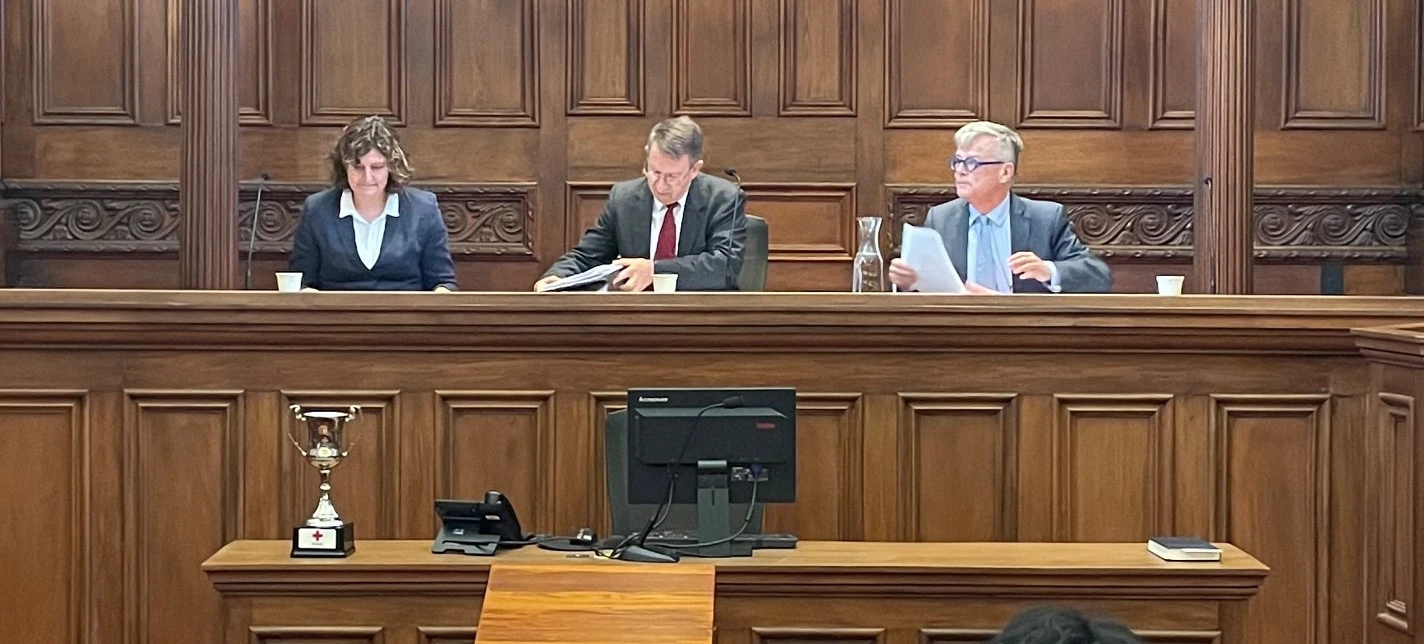Moot Court Competition


The international humanitarian law Moot Court Competition is usually held once a year in Wellington to raise awareness of the laws or war.
Competition aims
We hold the Competition every year and it's open to teams from each of the six New Zealand universities' law schools.
The purpose of the Competition includes:
- enhancing knowledge and understanding of humanitarian law
- developing capacity to apply the law in a practical and relevant manner to real-life situations,
- supporting teaching humanitarian law in New Zealand universities, and
- preparing participants for humanitarian law-related professional aims.
Entry criteria
The competition is open to students studying law at New Zealand law schools. Mooting societies select their team, and registration is at the discretion of the Dean of the law school.
Read more about entry criteria in the Moot rules 2024
For more information, contact your Dean or our team: ihl@redcross.org.nz
Preparing for the Moot
We coordinate with the Dean of each law school to organise and pay for travel and two nights' accommodation for participants. Participants can request different travel arrangements but must pay any difference in costs.
To prepare for the Moot, you’ll need the Moot Problem — which is fictional but deals with real issues — and the Moot Rules. The Moot Problem and specific rules for each year's competition will be published in July:
Teams must submit a Synopsis of Argument — separately for prosecution and defence — one week before the competition.
Useful resources
- ICRC law and policy platform
- ICRC online training centre
- Introduction to International Humanitarian Law (e-learning course)
- Information about the role of ICRC's legal advisers
Fundamentals
- ICRC Interpretive Guidance on the Notion of the Direct Participation in Hostilities
- IHL casebook- how does Law Protect in War?
- International Humanitarian Law: A Comprehensive Introduction
- The Geneva Conventions and their Additional Protocols and their commentaries
Contemporary issues
- ICRC position paper: IHL and Cyber Operations During Armed Conflicts
- ICRC short papers on IHL and cyber operations during armed conflicts
